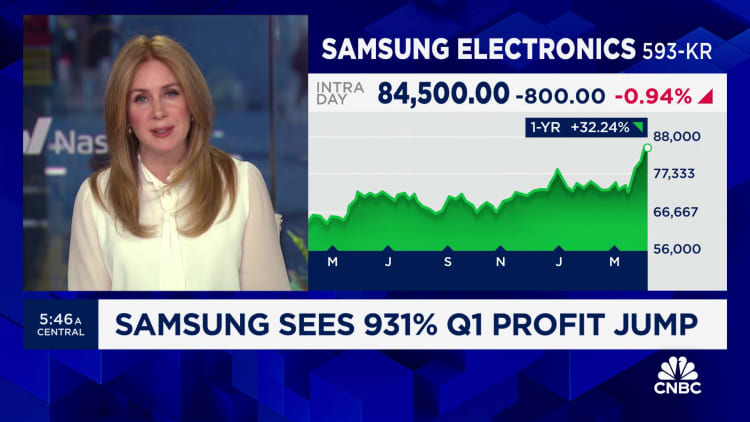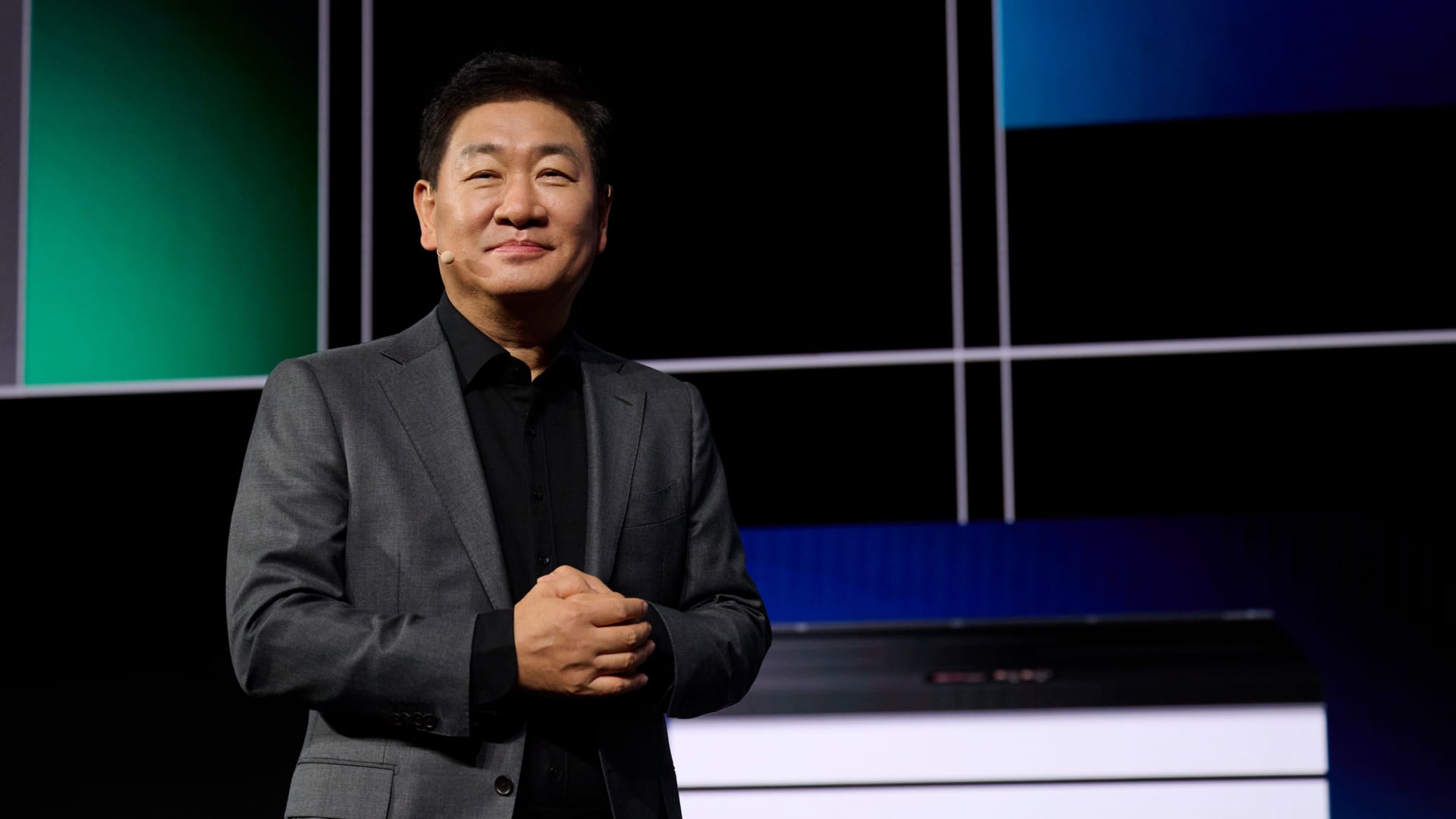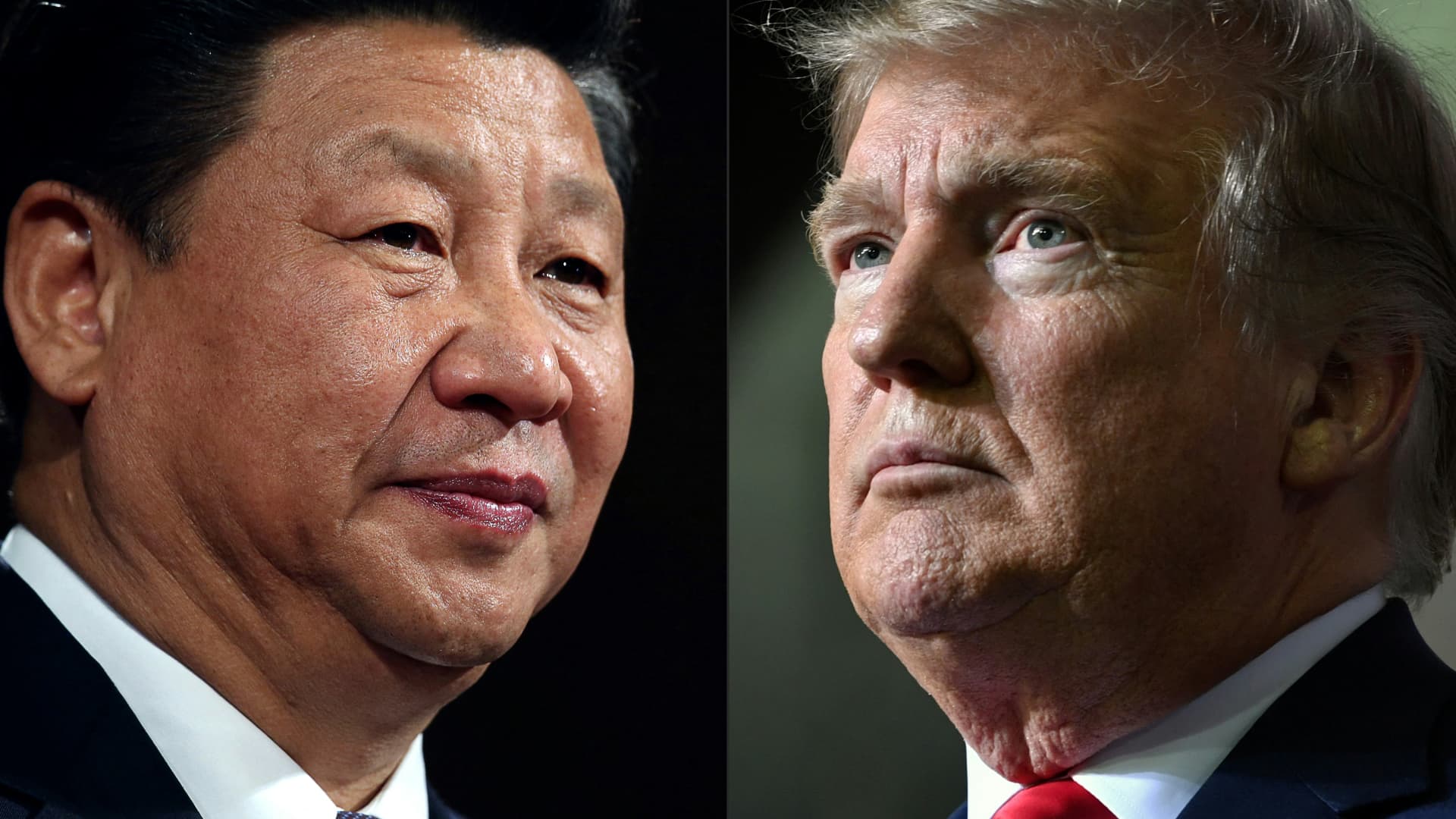Samsung Electronics plans to ramp up its on-device AI business, with the aim of exceeding global market growth in the consumer electronics segment this year.
The global consumer electronics market for smartphone, TV and home appliances will grow roughly 3% in 2025, Jong-Hee Han, chief executive officer of Samsung Electronics, told CNBC’s Chery Kang.
Samsung, the world’s largest smartphone and TV maker, expects its mobile devices business to grow by 4%-5% this year, while growth in TV and home appliances unit is also likely to accelerate, said Han, also the head of device eExperience (DX) division of Samsung Electronics.
Samsung Electronics has been ramping up efforts to connect its devices to artificial intelligence, installing AI chips in its fridges, washing machines and robot vacuum cleaners.
It has also been bolstering its AI functions on its premium flagship smartphone models, such as the Galaxy S24 series, which has multiple AI-enabled features including real-time translation of certain foreign language phone calls.
This comes as Chinese brands such as Huawei and Xiaomi have emerged as serious competitors to Samsung by offering high-end smartphones at significantly lower prices.
Competition from Chinese companies is ‘helpful” for Samsung and the consumers, Han said during the interview, noting that the company aims to differentiate its products with more security and convenience, rather than lowering prices.
AI chip delays
Samsung announced a major leadership reshuffle in November, putting Jun Young-hyun as co-CEO and head of the memory chip arm, sharing leadership duties with Han.
The South Korean tech giant, once the dominant force in the memory chip sector, has fallen behind SK Hynix in the race to supply high bandwidth memory chips, or HBM chips, that are a key component for AI leader Nvidia.

Samsung will reportedly issue its fourth-quarter revenue and operating profit forecasts on Wednesday, before releasing quarterly results in late January.
Samsung operating profit for the December quarter is expected to come in at 8.2 trillion won ($5.6 billion), according to Reuters estimates, a notable uptick from 2.8 trillion won it reported a year earlier, but down from 9.18 trillion won in the prior quarter.
In October, Jun, the semiconductor division head, issued a rare apology for the company’s disappointing third-quarter performance.
Last year, shares of the South Korean giant plunged 32%, according to LSEG data, lagging the broader benchmark Kospi’s 9.6% loss.

The share price has “never been this low before,” Han said during the interview, adding that the company has “value-up” plan, aimed at increasing shareholders’ returns. The plan will be announced “one by one when it’s in order,” he said, according to a CNBC translation of his statement in Korean.
Investors are hoping for Samsung to close the gap on HBM and get more serious about its “value-up” scheme, Phillip Wool, head of research at Rayliant Global Advisors said in a note Monday, while adding that the 10-trillion won share buyback plan may help stabilize the stock’s price.
The company unveiled a surprise plan in November to buy back about 10 trillion won worth of shares over the following 12 months.
Peter Lee, an analyst at Citi, cautioned in a note on Dec. 31, that a longer-than-expected delay in getting Nvidia’s approval for its HBM chips and weaker PC sales could continue to pose downside risks. He maintained a “buy” rating on the stock while trimming its target price to 83,000 won from 87,000 won.











